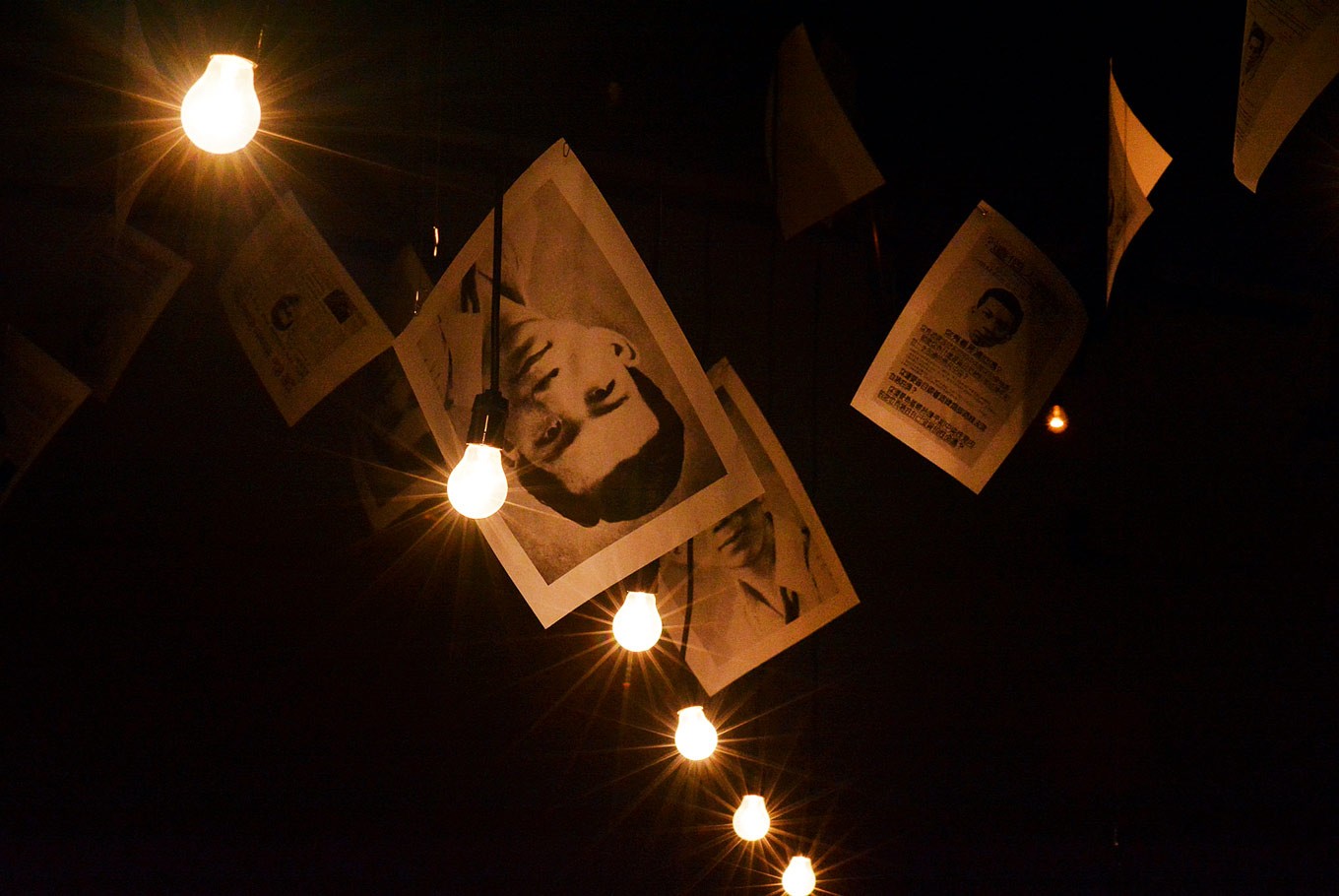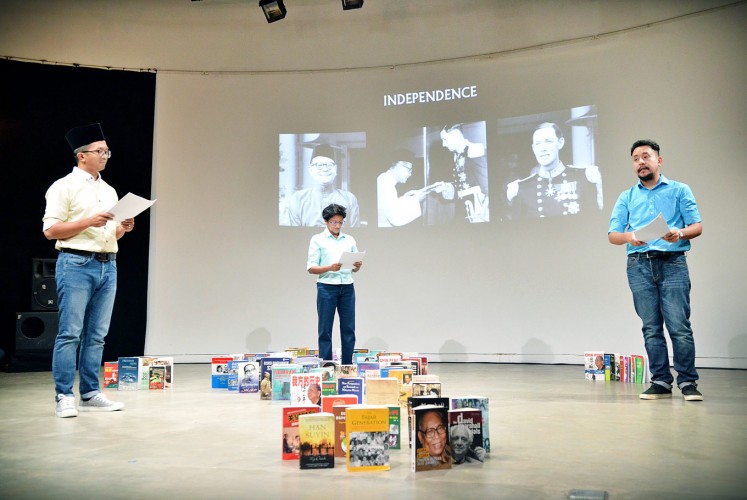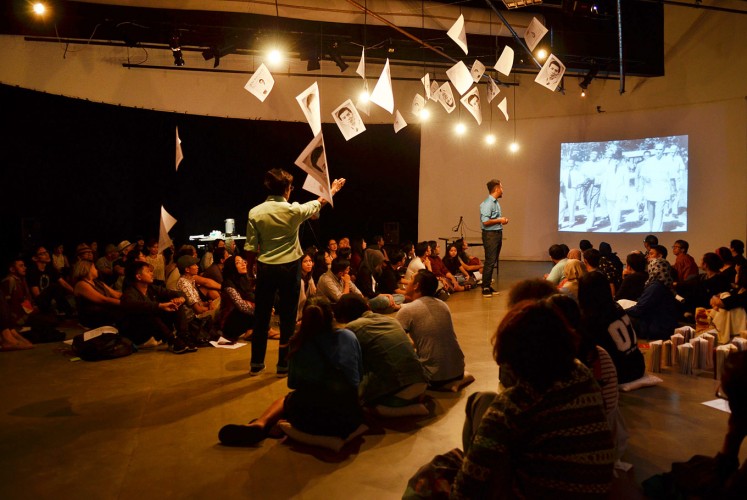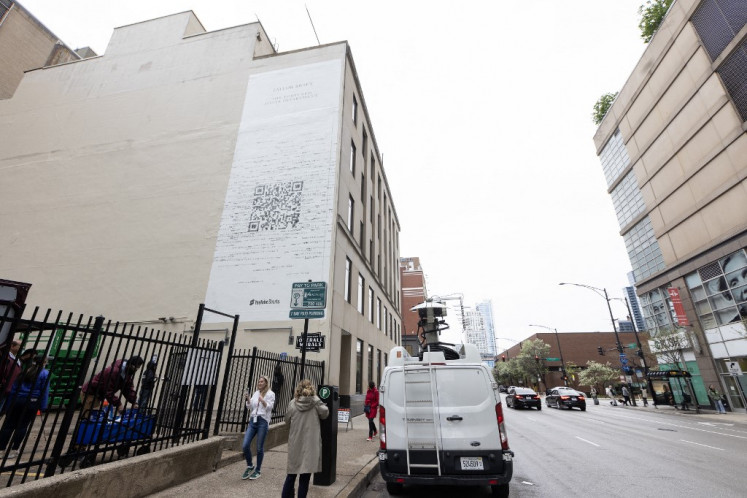'Baling' combines art and history
Malaysian theater group showcases unique style of storytelling to reconstruct the 1956 Baling Talks.
Change Size
 A Malaysian theater group showcases its unique style of storytelling to reconstruct the 1956 Baling Talks, a historical event that eventually led to the independence of Malaysia. (Salihara/Witjak Widhi Cahya)
A Malaysian theater group showcases its unique style of storytelling to reconstruct the 1956 Baling Talks, a historical event that eventually led to the independence of Malaysia. (Salihara/Witjak Widhi Cahya)
D
irected by Mark Teh, Baling a political drama revolving around the real-life figures of Malaysian founding father Tunku Abdul Rahman, British representative David Marshall and leftist Malaysian leader Chin Peng.
In previous performances, the theater group had always used different approaches in delivering the narrative about the Baling Talks.
During its latest performance, which took place at the Salihara Community Gallery in Jakarta on Sept. 1 and 2, the group once again showcased a different storytelling method in which there was no center stage and instead, the actors move freely around the audience, who were placed in the middle of the room.
What also made the group’s latest performance unique was its emphasis on dialogue, which was based on historical documents, instead of physical movements, according to Teh.
“I didn’t make fiction […] we took scripts that are historical-based, such as newspapers, transcripts of the [Baling] Talks so we could fix it with our perspective,” Teh said.
The cast also changed characters frequently during the performance so the audience had to figure out what their roles were based on the dialogue.

Teh said he wanted to let the audience interpret the dialogue using their own judgment and perspective, so they could reflect on the topics and decide whether the context fits with the overall historical narrative.
The performances also used people from different backgrounds to play the three main leading roles.
“We invited many people from different types of professions, such as human rights lawyers, film makers, sociologists and historians to read as Chin Peng, Tunku Abdul Rahman and David Marshall,” Teh said.

Perhaps the most challenging part for the group in performing the play was its decision to deliver new narratives about Chin Peng, who was labeled an enemy of Malaysia, a country that, like Indonesia, does not welcome leftist and communist ideologies.
Chin Peng in Malaysia, according to Teh, has the same notoriety as D.N. Aidit, the former chairman of the once great but now banned Indonesian Communist Party (PKI), which was accused by Soeharto’s New Order regime as the main orchestrator of the Sept. 30 Movement of 1965 that took the lives of almost every single Indonesian army general.
“We were a little bit scared to focus on Chin Peng,” Teh Said.








